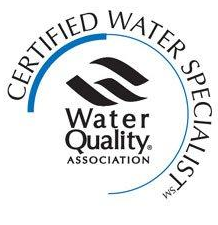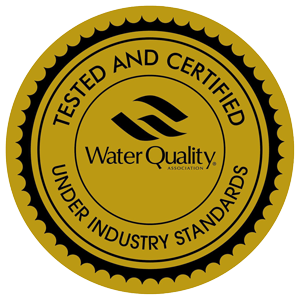Home |
Residential |
UlLTRA PRO Water Filtration System with Ultra Violet Light Sterilizer |
UlLTRA PRO Water Filtration System with Ultra Violet Light Sterilizer
AQUA ONE State of the Art New Invention. (Patent Pending)



UV Function
Unlike most disinfectants, ultraviolet (UV) radiation does not inactivate microorganisms by chemical interaction. UV radiation inactivates organisms by absorption of the light which causes a photochemical reaction that alters molecular components essential to cell function. As UV rays penetrate the cell wall of the microorganism, the energy reacts with nucleic acids and other vital cell components, resulting in injury or death of the exposed cells. There is ample evidence to conclude that if sufficient dosages of UV energy reach the organisms, UV can disinfect water to whatever degree is required.
Based on the available research literature, it appears that although exceptional for disinfection of small microorganisms such as bacteria and viruses, UV doses required to inactivate larger protozoa such as Giardia and Cryptosporidium are several times higher than for bacteria and virus inactivation As a result, UV is often considered in concert with ozone and/or hydrogen peroxide to enhance the disinfection effectiveness of UV or for ground water where Giardia and Cryptosporidium are not expected to occur.
UV Radiation
UV radiation quickly dissipates in water to be absorbed or reflected off material within the water. As a result, no residual is produced. This process is attractive from a DBP formation standpoint; however, a secondary chemical disinfectant is required to maintain a residual throughout the distribution system, which may be subject to recontamination.
Benefits
- No chemicals added
- No disinfection by-products
- 24/7 Bacteria free water
- Cost-effective
- Fast-acting
- Proven and trusted
- More effective against a broader range of organisms than chlorine
- Simple to maintain
- Very Low energy consumption
- 12000 Hours bulb Life
- One Year Bulb life warranty
- Replacement parts easily available
- Easy Lamp Replacement
Features
- 316L stainless steel, polished reactors, manufactured to ASME vessel pressure standards
- 20"x2.5" housing Polished & pressure tested.
- Absulate 1 & 5 microns 2.5"X20" pleated Polypropylene filter cartridges
- 21.2 to 100 liter per minute Models
- Stainless steel 1000 PSI Corby 3/4" Ball Valves.
- Two 2.5" Stainless Steel Pressure gauges 0-100 PSI
- Equipped with CoolTouch valve kit
- Securely mount on HDPE 1/2" thick Sheet
- Stand Alone or Wall Mount
- UV Max Model C to E All versions available
- Electronics with LED display for remaining lamp life, total running hours, audible & visual lamp failure alarms, remote on and solenoid ready
- Constant current electronic ballasts in a splash-proof (IP-54) case
- User-friendly bayonet style lamp connector (quick ¼" turn removal with no extra tools needed)
- Reliable, industry proven low-pressure amalgam (LP-AM) coated UV lamps 12,000-hour lamp life
- 10 year limited warranty on UV reactors

Brochure pdf
Owner's Manual pdf

 (905) 607-5999
(905) 607-5999 

















